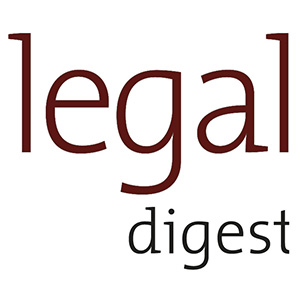Amy Coney Barrett, President Trump’s nominee to replace Ruth Bader Ginsburg on the U.S. Supreme Court, has a thin judicial record on property and environmental issues. But the one recent opinion she wrote provides some insight into how she might approach those issues on the high court: carefully, narrowly, and with deference to local government.
Environmental groups are excoriating Barrett as a threat to all efforts at environmental protection, particularly combatting climate change. Typical is the statement from the Center for Biological Diversity, a public interest law firm that has been extremely effective in California land-use law. The statement called Barrett “an ideological fanatic who lacks the temperament to rule fairly in the interest of all Americans” and predicted Barrett “will slam shut the courthouse doors to public interest advocates, to the delight of corporate polluters.”
And many environmentalists are concerned that by reducing the number of liberal justices on the high court to three, public-interest-oriented cases in the environmental and property arenas won’t even get a hearing in front of the Supreme Court because it takes four votes to hear a case.
To be sure, Barrett’s confirmation would pull the court in a conservative direction on property and environmental issues. Recently she joined a majority of the Seventh U.S. Circuit Court of Appeals in rejecting the argument that wetlands surrounded by residential development, 11 miles from the nearest navigable waterway, required a federal permit, as the Army Corps of Engineers argued. But she did not write the ruling.
In the one environmental/property opinion she has written as a member of the Seventh Circuit – issued only a month ago – Barrett rejected a very expansive federal takings claim and showed extreme deference to the City of Chicago. She also showed herself to be extremely careful in her legal reasoning and an unusually clear and accessible writer of judicial opinions.
The case involved a legal challenge by a parks watchdog group and Chicago residents to Chicago’s deal with the Barack Obama Foundation to place the Obama Presidential Center in historic Jackson Park, originally the site of the famous Chicago World’s Fair in 1893. The deal granted an extraordinary amount of control over a public park to a private foundation.
The watchdog group sued on a wide variety of arguments, but the one of most interest to those outside of Illinois was the group’s attempt to claim that the deal with between the city and the Obama Foundation amounted to a taking of public property for private gain under the Fifth Amendment of the Constitution.
In short, the plaintiffs invoked Illinois’ “public trust” doctrine to claim that the deal illegally transferred control of a public park to a private entity for private purposes. Then the plaintiffs argued that, as Chicago residents and taxpayers, they have a “beneficial interest” in the park under the public trust doctrine. This beneficial interest, they argued, constitutes a property right worthy of protection under the Fifth Amendment – and the Obama deal was a taking of that property right. The plaintiffs also argued that their substantive due process rights were violated under the Constitution.
This is a pretty far-out argument even for a citizen group, and it’s easy to imagine Barrett’s mentor, Antonin Scalia, dismissing it with memorably snarky language. Indeed, Barrett does note that “the alleged property right” is “highly unusual” and “one might be immediately skeptical about whether it exists”. But her ruling dispatches the constitutional claims carefully, with admirable restraint, and with considerable deference to the city.
On the takings claim, she relies heavily on an Illinois Supreme Court case that concluded that private landowners near a public park have no private property right in having the park used a particular way. “If adjacent landowners have no protected interest in public land, then the plaintiffs don’t have one either,” she wrote. “Although the plaintiffs wish it were otherwise, the Illinois cases make clear that the public trust doctrine functions as a restraint on government action, not as an affirmative grant of property rights.”
And she added: “What’s more, the City’s judgment that a particular transfer and use has a public purpose is entitled to deference.” She noted that it’s hard to argue that the Obama Center, which includes a museum, a branch library, an auditorium, an athletic center, and gardens, does not have a public benefit.
On the substantive due process claim, she also deferred to the City of Chicago and also the state. She quoted a previous Seventh Circuit ruling concluding that one legislative determination “provides all the process that is due”. Noting that the city adopted four different ordinances – after “multiple public hearings” and the state also amended laws to accommodate the Obama Center, she concluded: “If one legislative determination is enough, then five determinations are overkill.”
CP&DR is a subscriber-supported publication. This article is being provided free of charge, but most articles are available only on a premium basis.
For FULL ACCESS to all our premium content - Subscribe Online Today!
(If you're not a subscriber premium articles can be purchased for just $5 each by visiting our online Single Purchase Store)
COMMENTS:


